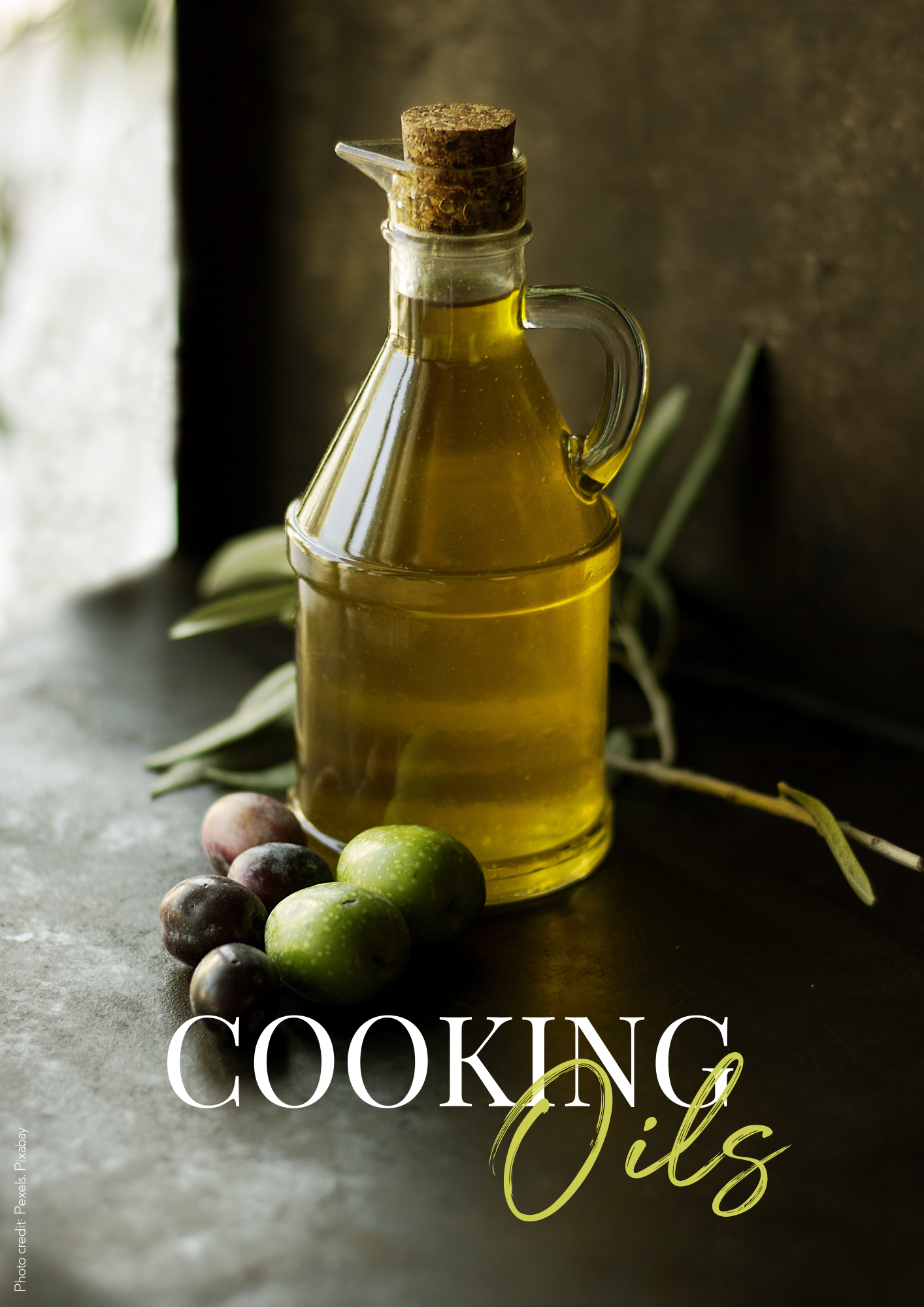Fats, Oils and Cooking Methods
Eating healthy fats like nuts, seeds, avocado, olives and oily fish are good for you and help you feel full but how much of them should you be eating and which are the heathiest? We recommend that you eat oily fish such as salmon, trout, tuna and mackerel, three times a week and have at least one heaped tablespoon of nuts and seeds every day. This will ensure you not only meet all your dietary needs for essential fats, but you will also feel satisfied. Don’t be put off by the misleading anti-fat messaging. Eating healthy fats can help as part of a health and weight loss programme.
The Best Way To Cook With Oils
Eating the right fats is important and so is the method used to cook and prepare foods. For instance, frying at high temperatures and burning damages both the food and the oil and makes them harmful to your health. Some oils are OK when used for cooking but many are not.
It is best to stick to other methods of cooking like steaming, baking, poaching and steam frying instead of stir frying. You can steam fry simply by adding a small amount of water to the oil, stir frying for a minute or two and then covering with a lid to cook. This method reduces the heat, protecting the oil from becoming damaged and is, therefore, better for your health.
Top Food Preparation Tips
- Buy foods as fresh and unprocessed as possible and eat them soon afterwards.
- Eat more raw food, It has many more nutrients intact.
- Be adventurous and try things you haven’t tried before.
- Cook foods as whole as possible, slicing, cutting or blending after cooking.
- Use as little water as possible as the goodness in the food leaks into the water. Reuse any water used for soups or sauces.
- Steaming, poaching and steam frying are the healthiest methods of cooking.
- Favour slower cooking methods that retain flavour and nutrients whilst introducing less heat.
- Don’t overcook, burn or brown food.
- Fry foods as infrequently as possible and try switching to coconut oil for steam frying.
Healthy Cooking Basics: Fats & Oils
Vegetable and seed oils are being used more widely than ever and many nutritionists believe this might be a major cause of health problems .Ultimately, how healthy (or otherwise) they are depends on the plants they come from, how they are processed and how you use them.
Nutritionists often suggest avoiding the following due to their very high omega 6 content, and the refining methods used, which can create inflammation in the body.
- Sunflower oil
- Peanut oil
- Seasame oil
- Rice bran oil
- Corn oil
- Palm oil
- Vegetable oil (often rapeseed oil)
Which Fats For Cooking?
How the fat is used (through cooking and processing) is the deciding factor in whether it’s healthy or unhealthy. Essential fatty acids (EFAs) become free radicals in the presence of light, oxygen and heat.
Frying with oils like olive oil at high temperature leads to oxidation and the production of free radicals. In short, if you heat an oil past its “smoke point”, the flavour changes and the oil can become damaged – it becomes inflammatory for the body and may increase the risk of heart disease or cancer.
One of the healthiest and versatile oils to cook with is extra virgin olive oil but its low smoke point makes it best for low to medium heats – don’t use it for stir frying or roasting at high temperatures.
Good oils for high temperatures are saturated fats, which are more stable. These include avocado oil, coconut oil, butter, ghee (clarified butter), goose fat or cold pressed rapeseed oil.
A Little Drizzle
Omega 3 fats (the kind of fat found in oily fish and some nuts and seeds) are very anti-inflammatory but they are fragile, so aren’t well suited to being used for cooking. Instead, consider using them to perk up salads and veggies. These oils include flaxseed oil and walnut oil. Other oils perfect for including in dressings include extra virgin olive oil, and avocado oil.
Top Tip
Try using your own delicious salad dressings with extra virgin olive oil or avocado oil or any of the oils above rather than shop bought ones, They take seconds to make. Make yours with cold pressed, unprocessed nut or seed oils mixed with garlic, herbs and a good quality red/ white wine or apple cider vinegar and fresh black pepper.
Make A Simple Dressing
Put all the ingredients together in a jam jar. Pop the lid on and shake.
Classic vinaigrette: 2 tbsp white or red wine vinegar, 1/2-1 tsp Dijon mustard, salt and freshly ground black pepper, 6 tbsp good extra virgin olive oil.
Chilli & garlic: 60ml extra virgin olive oil, 1 tsp sliced chilli, 1 garlic clove, crushed. Salt and pepper to season.
Balsamic vinaigrette: 6tbsp extra virgin olive oil, 2tbsp balsamic vinegar, 1 level tbsp clear honey, 1 level tbsp wholegrain mustard.


